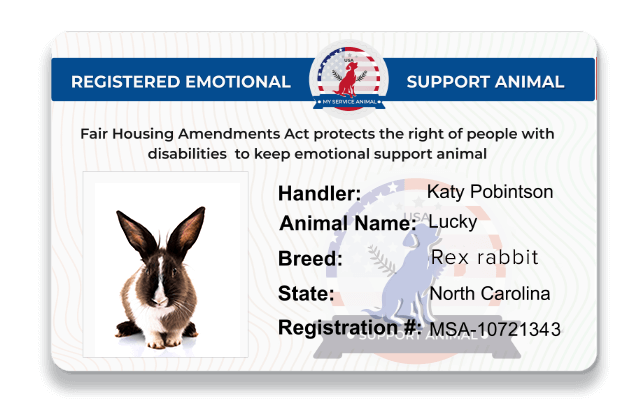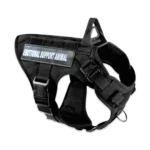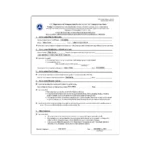Massachusetts residents, like other US citizens, have the option of using emotional support animals to alleviate the symptoms of their mental disturbances. Here is a summary of the features of holding an ESA in Massachusetts.
Who is entitled to having an ESA in Massachusetts?
In order to be able to become an ESA holder, you must have a non-physical malady corroborated by your therapist. The most common ailments that can be treated with emotional support animals include learning disabilities, ADHD, mental retardation, tic disorders, motor disorders, gender and sexual identity issues, and disorders related to alcohol and/or drug addictions.
What’s more, emotional support animals in Massachusetts are actively involved in the treatment of bipolar disorder and cognitive impairment of various degrees of severity. For example, bipolar in humans is characterized by mood swings between phases of depression and mania or hypomania. During the phase of mania, a person has an extremely good mood, they are energetic, cheerful and at the same time easily irritated. Through this period, the animal is needed to calm its keeper, as well as to facilitate the release of accumulated energy in the person so that the manic episode passes faster.
During the depression phase, the outlook on life becomes negative, a human feels unhappy and despondent, they have no hope that something will improve in the future, have suicidal thoughts, and self-hatred appears. In the course of this phase, ESAs cheer up their handlers and makes their lives brighter. Besides, during depressive episodes, people are more vulnerable, so the animal also performs an additional protective function.
The impact of emotional support animals on your life and health


Studies have shown that people feel more relaxed, less anxious, and less lonely when they hold or pet an animal. Animals also normalize humans’ heart rate and blood pressure and improve their mood and general well-being. This effect is noticeable even from periodic interaction with animals, so being near an animal around the clock, if you have no contraindications, can influence and have a long-lasting effect on your psychological and emotional shape.
Despite the fact that animals cannot always understand the feelings of their possessor and provide verbal support, in Massachusetts ESAs are considered full-fledged four-legged therapists and are always ready to provide their “patients” with the helping hand they need. Many handlers enjoy interacting with their ESAs because they know the animal cannot judge or give advice. At the same time, the opportunity to talk about your inner frustrations is an important stage for realizing the presence of certain problems in your life and the first step on the way to a positive outcome of therapy.
Animals provide bilateral love and attention, which is extremely important in speeding up the patient’s recovery. Animal owners learn not only to receive the requisite consolation and solicitude but also learn to care for others. Caring for another living helping people feel important and independent, which is essential, especially for those with cognitive illnesses.
Focusing on ESAs helps a person take their mind off things that cause anxiety, tension, or stress. Being responsible for an animal can be challenging but it also gives men a sense of purpose and boosts positivity. In addition, the animal provides its holder with regular physical activities such as walks or exercises. Regular physical exertion is one of the first recommendations that therapists give to patients who, for example, suffer from depression.
How do I get my ESA approved in Massachusetts?
To resolve legal issues related to emotional support animals, you must have documents confirming the need for an animal for your psychogenic health, that is, certifying that the animal is not a pet.


This function is performed by a special letter issued by a licensed medical professional. The ESA letter contains a specialist’s opinion as to whether you have a mental health affliction that requires the aid of an emotional support animal. The letter must be issued on an official form, containing the date of issue and the signature of the specialist.
If you live in Massachusetts, you should see a licensed Massachusetts healthcare provider. Before contacting a psychologist or psychotherapist, find out whether the counselor you have chosen has a sufficient level of knowledge in the field of emotional support animals and whether they can provide you with the necessary documents.
Massachusetts authorities do not require additional registration for emotional support animals from residents. However, most ESA keepers draw up additional documents for the animal for their own convenience. Therefore, after receiving a letter from the doctor, you have the opportunity to additionally order an Emotional Support Animal ID card, a Pet Tag, an ESA vest, and other accessories from the registrar’s MyServiceAnimal. If you need to register your ESA Dog with all additional accessories you can order MyServiceAnimal ESA Full Kit.
Massachusetts Companion Animal Laws
Companion animals do not meet the definition of “assistance animals” under the ADA, so their rights are limited compared to registered service animals. Massachusetts law also does not give ESAs additional rights.
Local governments in Massachusetts do not require emotional support animals to undergo individual training or certification. ESAs are mostly not required to perform certain tasks. Their main goal is to provide commiseration and a sense of security for their possessor. The state of Massachusetts does not limit ESA owners by breed or species. In most cases, patients prefer dogs, but other animals are also accepted for this role.
However, according to the Fair Housing Act, ESAs still fall under the expanded definition of “assistance animals”, so these creatures have privileges in the field of housing.
In compliance with the FHA, assistance animals are not pets. These are creatures that provide succor or carry out tasks for people with inabilities, as well as come up with the emotional prop that alleviates one or more symptoms of a psychic infirmity that the patient is suffering from.
The FHA gives individuals with impairments the right to request reasonable accommodation for the residence of any assistance animal, including emotional support ones. This allows ESA owners to bypass the no-pets policy and live with their companion animals without hindrance from the landlord.
Before moving into rented housing with an emotional support animal, you need to obtain permission from the householder. To do this, you must have documentation that the animal is needed for therapy if your dysfunction or inability is not obvious or the householder does not know about it. Usually, an ESA letter from a doctor is sufficient to prove the legitimacy of an emotional support animal in Massachusetts. In some cases, this function can be performed by a document from local authorities on the permissibility of an ESA.
Residing with ESAs in Massachusetts


Under federal law, in most cases, a housing provider must give permission to live with emotional support animals to tenants who need one. At the same time, the proprietor has the right to ask you to provide an ESA letter confirming the call for an emotional support animal to meet your needs related to the disturbance.
Also, for the safety of other residents of the building, the proprietor may ask you to provide guarantees that the animal is healthy, has all the necessary vaccinations, and does not transmit any diseases. Therefore, we recommend that you also carry a certificate from a veterinarian for the animal.
The landlord cannot charge the residents an additional fee for keeping an animal. However, in case of damage caused by an animal, the lessor has the right to demand full compensation from the lessee.
When it comes to emotional support animals in Massachusetts, a housekeeper cannot define the limits of acceptable animals based on their species, breed, or other physical characteristics. Nor can they refuse or evict a tenant with an ESA at will, without objective reasons.
However, it is important to note that there are cases where emotional support animals in Massachusetts may be denied housing. For example, if the animal imposes an excessive financial burden on the housing provider or significantly changes the nature of the services provided by the lessor. You can learn more about how to rent an apartment with ESA in our article.
Also, an animal may be evicted if it jeopardizes the health or safety of others if this threat cannot be reduced or eliminated by other reasonable accommodations. Also, the proprietor has the right to evict you if the animal systematically causes significant damage to the property of the landlord or other tenants.
For this, the landholder must have clear facts and evidence of the animal’s harmful actions, since the decision to ban or evict the ESA and its owner cannot be based on subjective judgments and assumptions.























